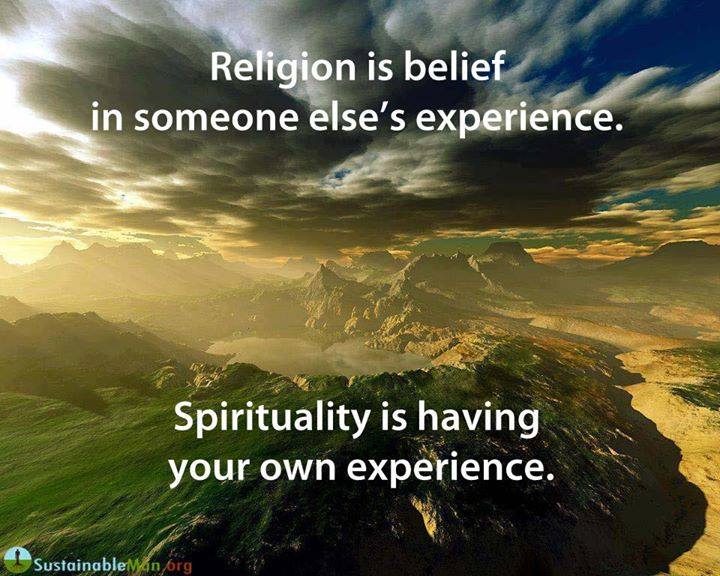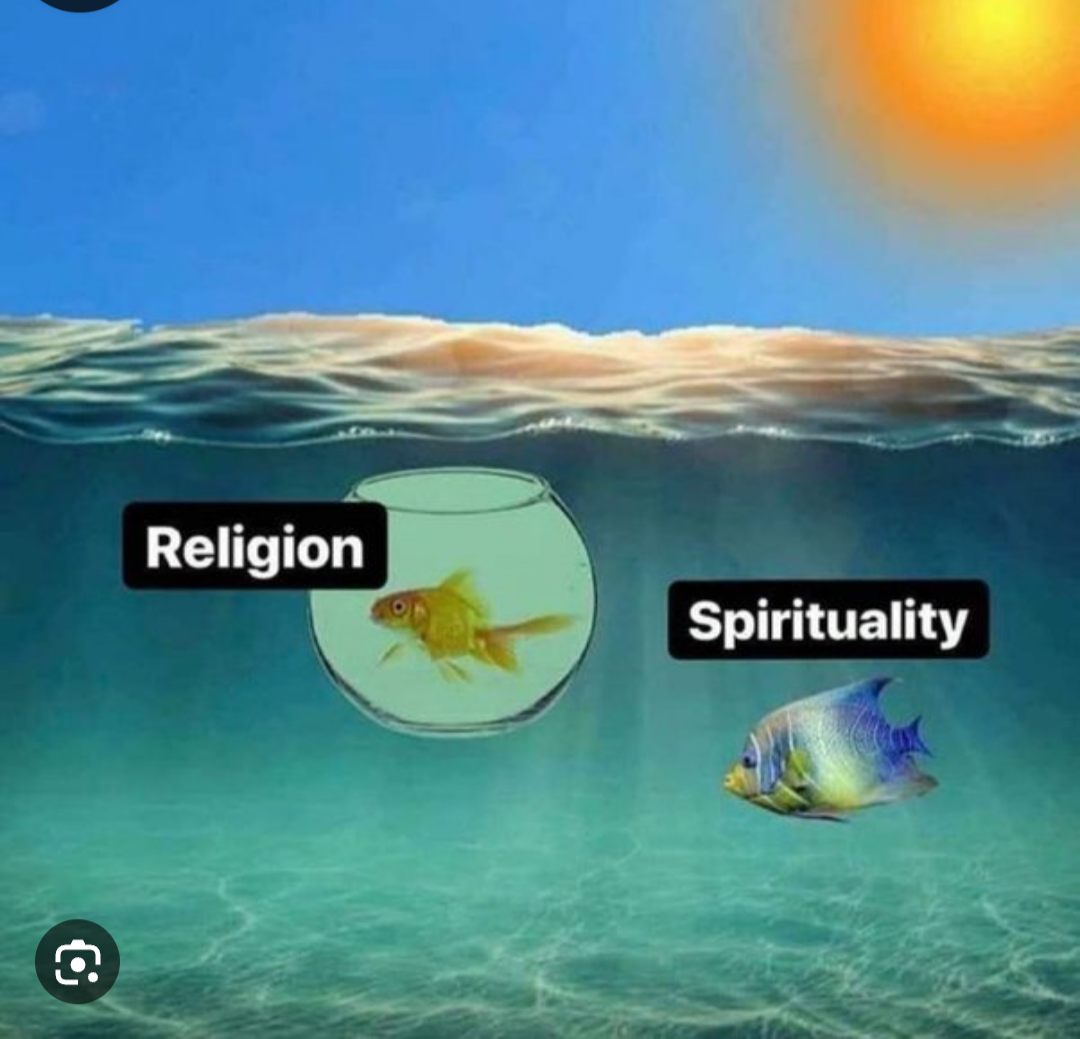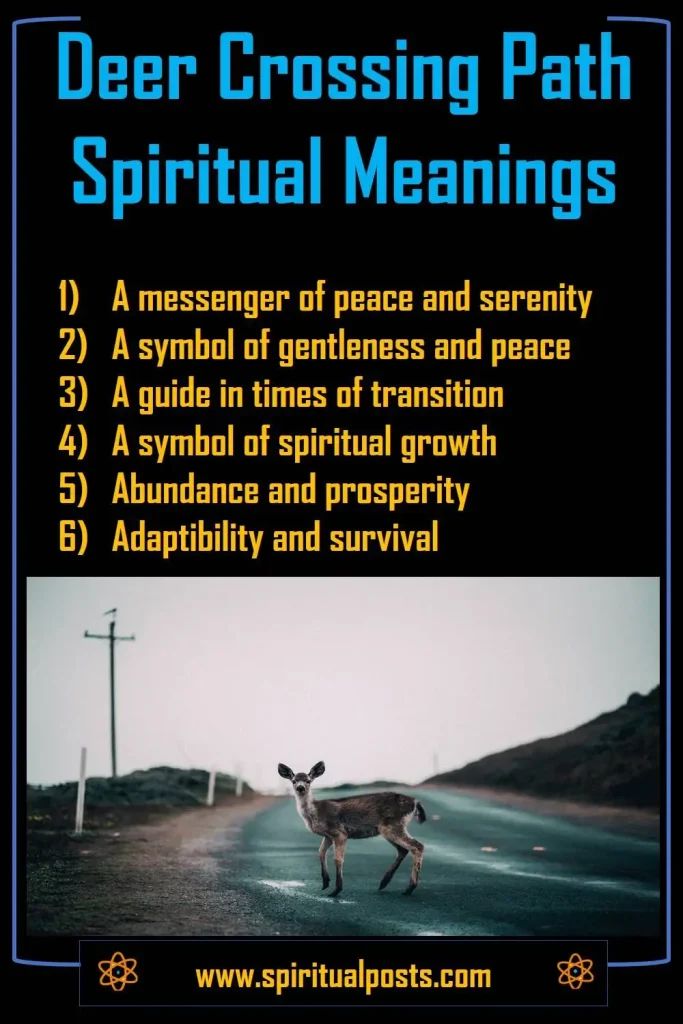Religion Vs Spirituality
Religion and spirituality are distinct aspects of human belief and experience. In religion, adherence to prescribed rituals and doctrines is emphasized, while spirituality focuses on personal connection with higher powers and inner enlightenment.
While both offer paths to faith and understanding, each individual must find the balance that resonates with their own beliefs and values. We will explore the differences between religion and spirituality, the benefits of each, and how they can coexist harmoniously in a person’s life.
So, whether you identify with a specific religious tradition, follow a spiritual path, or are simply curious about these topics, read on to gain a deeper understanding of religion and spirituality and their significance in our lives.
Definition And Key Differences
Religion and spirituality are two interconnected aspects of human belief systems that often overlap but possess distinct characteristics. While religion generally refers to an organized set of beliefs, practices, and dogmas involving a group of people, spirituality encompasses an individual’s personal connection with the divine, inner self, or higher power. Understanding the differences between religion and spirituality is crucial for those who seek a deeper understanding of their own beliefs and the diverse beliefs of others.
Religion And Its Characteristics
Religion encompasses a structured and organized system of beliefs, rituals, ethics, and traditions that often revolves around a specific deity or deities. It provides a framework for understanding and interpreting the world and commonly involves a community of believers who follow a set of religious teachings. Some key characteristics of religion include:
- Followers adhere to a specific doctrine and often belong to a religious institution or community.
- Religious rituals and practices, such as prayers, sacraments, and ceremonies, form an essential part of worship.
- Religion often provides a sense of identity, belonging, and moral guidance.
- Religious texts or scriptures serve as authoritative sources of wisdom and guidance.
- Religions tend to have organized hierarchies with leaders, clergy, or religious authorities.
Spirituality And Its Characteristics
Spirituality, on the other hand, focuses on an individual’s inner quest for meaning, purpose, and connection with a greater reality. It is less formalized and often based on personal experiences, intuition, and introspection. Some key characteristics of spirituality include:
- Spirituality is a personal journey that varies from individual to individual.
- It emphasizes the development of one’s inner self, personal growth, and self-awareness.
- Spiritual practices can include meditation, mindfulness, yoga, or exploring nature.
- It often involves seeking answers to existential questions, finding inner peace, or striving for enlightenment.
- There is no required doctrine or religious institution in spirituality, allowing for more flexibility and exploration.
Differences Between Religion And Spirituality
| Religion | Spirituality |
|---|---|
|
|
Recognizing the distinctions between religion and spirituality allows individuals to explore their own beliefs and values while respecting the diverse paths others may take. While religion provides structure and community support, spirituality fosters personal growth and inner fulfillment. Both aspects are essential to human existence and contribute to the rich tapestry of belief systems found throughout the world.

Credit: chopra.com
Beliefs And Practices
When exploring the contrast between religion and spirituality, it is important to delve into their respective beliefs and practices. While religion and spirituality are often used interchangeably, they have distinct characteristics that set them apart.
Religious Beliefs And Practices
Religion encompasses a set of organized beliefs and practices that are typically associated with specific institutions or communities. It revolves around the worship of a higher power or deity and often involves rituals, ceremonies, and adherence to dogmas.
Religious beliefs provide a structured framework that guides individuals in their moral, ethical, and spiritual journey. They commonly follow scriptures or holy texts, which serve as a source of inspiration and wisdom. Worship may take place within designated places of worship such as churches, mosques, temples, or synagogues, where individuals gather to engage in collective rituals and ceremonies.
The practices within religions often involve specific rituals, sacraments, or rites that have symbolic meanings. For example, in Christianity, the sacrament of baptism signifies an initiation into the faith, while the celebration of the Mass represents the reenactment of Jesus’ Last Supper.
In addition to rituals, religious practices often include guidelines for moral conduct and ethical behavior. These guidelines provide a framework for believers to lead virtuous lives, adhering to principles such as honesty, compassion, and humility.
Spiritual Beliefs And Practices
Spirituality, on the other hand, is a broader and more individualistic concept that focuses on personal growth, self-discovery, and connection to something greater than oneself. It is often characterized by the search for inner peace, meaning, and purpose in life.
Spiritual beliefs do not necessarily adhere to specific doctrines or dogmas but are shaped by an individual’s own experiences, intuition, and understanding. It can be seen as a flexible and fluid approach to exploring the mysteries of life and the universe.
Spiritual practices are diverse and can vary greatly between individuals. They may include meditation, prayer, mindfulness exercises, spending time in nature, journaling, or engaging in creative expression. These practices serve as tools for cultivating self-awareness, deepening one’s connection to the divine or spiritual realm, and fostering personal transformation.
Comparison Of Religious And Spiritual Practices
While religious and spiritual practices may have similarities in terms of seeking a connection to the divine, they differ in their approach and scope. Religions generally offer a more structured and communal experience, with predefined rituals and a shared sense of identity among followers. Spirituality, on the other hand, is often individualistic, allowing each person to explore their own unique path.
A comparison of religious and spiritual practices can be summarized as follows:
| Religions | Spirituality | |
|---|---|---|
| Beliefs | Adherence to specific dogmas and doctrines | Personal interpretation and experiences shape beliefs |
| Practices | Structured rituals, sacraments, and communal worship | Individualistic practices such as meditation, prayer, and self-reflection |
| Guidance | Religious authorities provide guidance | Personal exploration and intuition guide the path |
| Community | Shared sense of identity and belonging | More individualistic, less focused on communal gathering |
Ultimately, whether one chooses to follow religious beliefs and practices or embark on a spiritual journey, both paths offer opportunities for personal growth, understanding, and connection with the divine. It is up to each individual to explore and determine which approach resonates most deeply with their own values, beliefs, and aspirations.
Role In Society
The concepts of religion and spirituality play significant roles in shaping societies around the world. Both provide frameworks for individuals to understand the deeper meaning of life, their purpose, and how they relate to others. However, there are some fundamental differences in how religion and spirituality influence society.
Influence Of Religion On Society
Religion has long been a pillar of societies globally, permeating various aspects of people’s lives. It offers a structured belief system, moral guidance, and a sense of community. Here are a few key ways religion impacts society:
- Codes of Conduct: Religions often provide a set of moral guidelines and ethical principles that shape individual behavior. These codes of conduct help establish societal norms, promoting peace, compassion, and respect for others.
- Social Cohesion: Religious communities foster a sense of belonging and connection among their members. Regular rituals, services, and gatherings provide opportunities for individuals to connect, develop support networks, and find a place where they can be themselves.
- Charitable Works: Many religions encourage their followers to engage in acts of charity and service, addressing societal needs such as poverty, hunger, and healthcare. These efforts contribute to the betterment of society and the upliftment of the less fortunate.
- Political Influence: Religion has historically played a role in shaping political ideologies and governance structures. Religious institutions and leaders have influenced policy decisions, advocated for social justice, and even formed the foundation of political movements.
Influence Of Spirituality On Society
Spirituality, on the other hand, is a personal and individualistic approach to exploring the divine or transcendent. While it may not have the same organizational structure as religion, spirituality still has a significant impact on society. Here are a few ways spirituality influences society:
- Personal Growth: Spirituality encourages self-reflection, introspection, and personal development. Individuals striving for spiritual growth often adopt values such as mindfulness, compassion, and gratitude, contributing to a more harmonious and supportive society.
- Alternative Healing: Spiritual practices such as meditation, yoga, and energy healing have gained popularity for their potential to enhance overall well-being. They offer individuals tools to manage stress, improve mental and physical health, and find solace in times of adversity.
- Environmental Consciousness: Spirituality often fosters a deep respect for nature and the interconnectedness of all living beings. This mindset encourages sustainable practices, environmental stewardship, and a sense of responsibility towards the planet.
- Interfaith Dialogue: Spirituality often transcends religious boundaries, promoting dialogue and understanding between individuals of different faiths and beliefs. This inclusive approach to spirituality nurtures tolerance, respect, and multiculturalism, essential qualities for a diverse society.
Contrasting Impact Of Religion And Spirituality
While both religion and spirituality bring value to society, their impacts can differ significantly. Religion tends to offer a more structured and organized approach, guiding behavior, and providing a sense of belonging. Spirituality, on the other hand, focuses on personal growth, individual experiences, and fostering a deeper connection with oneself and the world.
In conclusion, religion plays a prominent role in providing moral guidelines, community, and even political influence, while spirituality emphasizes personal development, well-being, and interfaith dialogue. Recognizing the unique contributions of both religion and spirituality can lead to a more inclusive and harmonious society.

Credit: witshadows.wordpress.com
Benefits And Drawbacks
When it comes to matters of spirituality and religion, individuals often find themselves at a crossroads. They may wonder whether following a specific religious path or exploring their spiritual beliefs independently is the right choice for them. While both options have their merits, they also come with their respective drawbacks. In this section, we will delve into the benefits and drawbacks of religious involvement and spiritual exploration, allowing you to make an informed decision that aligns with your personal values and beliefs.
Benefits Of Religious Involvement
Religious involvement offers a plethora of benefits that can greatly enhance an individual’s sense of purpose, community, and personal growth. Here are some key advantages that come with embracing organized religion:
- Structure and Guidance: Religious institutions provide a well-established framework for navigating life’s complexities. They offer guidance through moral principles, ethical teachings, and prescribed rituals, providing individuals with a sense of direction and purpose.
- Community and Support: Religious communities foster a strong sense of belonging and connection. By participating in gatherings, social events, and shared religious practices, individuals can develop meaningful relationships, find support during challenging times, and build a sense of unity.
- Spiritual Growth: Religious involvement offers opportunities for spiritual growth and transformation. Through regular prayer, meditation, and participation in religious ceremonies, individuals can deepen their connection with a higher power, explore their faith, and develop a strong spiritual foundation.
- Moral Values and Ethics: Religious teachings often emphasize values such as compassion, forgiveness, and kindness. These moral principles can guide individuals in their relationships, decision-making processes, and overall ethical conduct, fostering personal growth and creating a positive impact on society.
Benefits Of Spiritual Exploration
Spiritual exploration, on the other hand, allows individuals to forge a personal connection with their own beliefs and understandings of spirituality, free from the constraints of organized religion. Here are a few advantages that come with independent spiritual exploration:
- Freedom and Flexibility: Exploring spirituality independently enables individuals to customize their spiritual journey according to their unique needs and beliefs. This flexibility allows for the incorporation of various spiritual practices, teachings, and philosophies that resonate with them.
- Personal Connection: Independent spiritual exploration encourages individuals to delve deeper into their inner selves and establish a personal connection with their spirituality. They can develop a profound understanding of their own beliefs, values, and purpose, leading to personal growth and self-actualization.
- Open-Mindedness: Without the dogmas or doctrines associated with organized religion, spiritual exploration promotes open-mindedness and the freedom to explore diverse spiritual paths. This can lead to a greater appreciation for different beliefs, increased tolerance, and a broader understanding of spirituality as a whole.
- Self-Discovery and Authenticity: Independent spiritual exploration offers an opportunity for individuals to discover their authentic selves and define their own spiritual identity. It allows for introspection, questioning, and personal growth, enabling individuals to align their spirituality with their unique values and beliefs.
Drawbacks Of Religiosity And Spirituality
While both religious involvement and spiritual exploration offer numerous benefits, it is essential to acknowledge the potential drawbacks associated with each:
| Religiosity | Spirituality |
|---|---|
|
|
Ultimately, whether you choose religious involvement or spiritual exploration, it is crucial to consider your own beliefs, values, and needs. Understanding the benefits and drawbacks of each path will empower you to make an informed decision that resonates with your unique spiritual journey.
Personal Journey And Perspective
When it comes to the discussion of religion versus spirituality, each individual’s journey and perspective play a crucial role in shaping their beliefs and values. Exploring one’s own path allows for personal growth and a deeper understanding of one’s spiritual connection. Finding a balance between religion and spirituality is a personal quest that resonates differently for each individual.
Exploring One’s Own Journey
One of the most exciting aspects of delving into the realms of religion and spirituality is the opportunity to embark on a journey unique to oneself. This journey involves exploring the depths of one’s beliefs, questioning preconceived notions, and seeking answers that align with personal experiences and inner wisdom.
It often starts with self-reflection and introspection. Taking the time to reflect on one’s thoughts, values, and desires can help uncover the aspects of religion and spirituality that resonate most deeply. This inner exploration allows individuals to define their own belief system, free from external influences, enabling a more authentic and fulfilling spiritual experience.
Finding A Balance Between Religion And Spirituality
For many individuals, finding a balance between religion and spirituality is essential. While religion tends to be more structured and adheres to specific traditions and rituals, spirituality focuses on personal connection and exploring one’s inner self.
One way to strike this balance is by participating in religious practices while incorporating personal spirituality. For example, attending religious services while also engaging in personal meditation or contemplative practices can help individuals nurture their spiritual connection and find meaning in their religious traditions.
Additionally, maintaining an open mind and embracing different spiritual practices and teachings can contribute to finding this balance. Exploring various belief systems, attending spiritual workshops or retreats, and engaging in interfaith dialogues can broaden one’s perspective and deepen their understanding of spirituality beyond their own religious background.
Different Perspectives On Religion And Spirituality
Religion and spirituality encompass a wide range of beliefs, practices, and experiences, leading to diverse perspectives among individuals. Some view religion and spirituality as intertwined, with religion serving as a structured framework to express one’s spirituality. Others find spirituality outside the boundaries of organized religion, embracing a more personal and eclectic approach to their spiritual journey.
| Religion | Spirituality |
|---|---|
| Revolves around specific texts, teachings, and rituals | Emphasizes personal experience and connection with the divine |
| Provides community and fellowship | Focuses on individual growth and self-discovery |
| May have a hierarchical structure and leadership | Encourages self-guidance and autonomy in spiritual exploration |
Understanding and appreciating the various perspectives on religion and spirituality is vital in fostering tolerance and respect in a diverse society. These differences enable individuals to learn from one another, allowing for personal growth and the development of a more inclusive spiritual landscape.

Credit: contentedlifecoaching.com
Frequently Asked Questions For Religion Vs Spirituality
What’s The Difference Between Religion And Spirituality?
Religion involves organized beliefs, rituals, and institutions based on a specific faith, with a focus on doctrines and practices. Spirituality, on the other hand, is subjective and individualistic, centered on personal experiences, connection with the divine, and inner growth.
Can You Be Spiritual Without Being Religious?
Yes, it is possible to be spiritual without being religious.
What Is It Called When You Believe In God But Not Religious?
Believing in God but not being religious is known as spiritual but not religious or having a personal spirituality.
What Does The Bible Say About Spirituality?
The Bible emphasizes the importance of spirituality, encouraging believers to seek a close relationship with God. It teaches that true spirituality involves faith, obedience, and living according to godly principles. The Bible provides guidance for spiritual growth and offers promises of comfort, peace, and eternal life through faith in Jesus Christ.
Conclusion
The debate between religion and spirituality encompasses various perspectives and beliefs. While religion provides a structured framework and rituals, spirituality emphasizes personal experiences and connection with the divine. Both offer a path for individuals to seek meaning and purpose in life.
Whether one chooses organized religion or personal spirituality, the common goal remains a deepened connection with the higher power and a strengthened sense of inner peace. Understanding and respecting these differences allow us to foster tolerance and acceptance in an increasingly diverse world.






